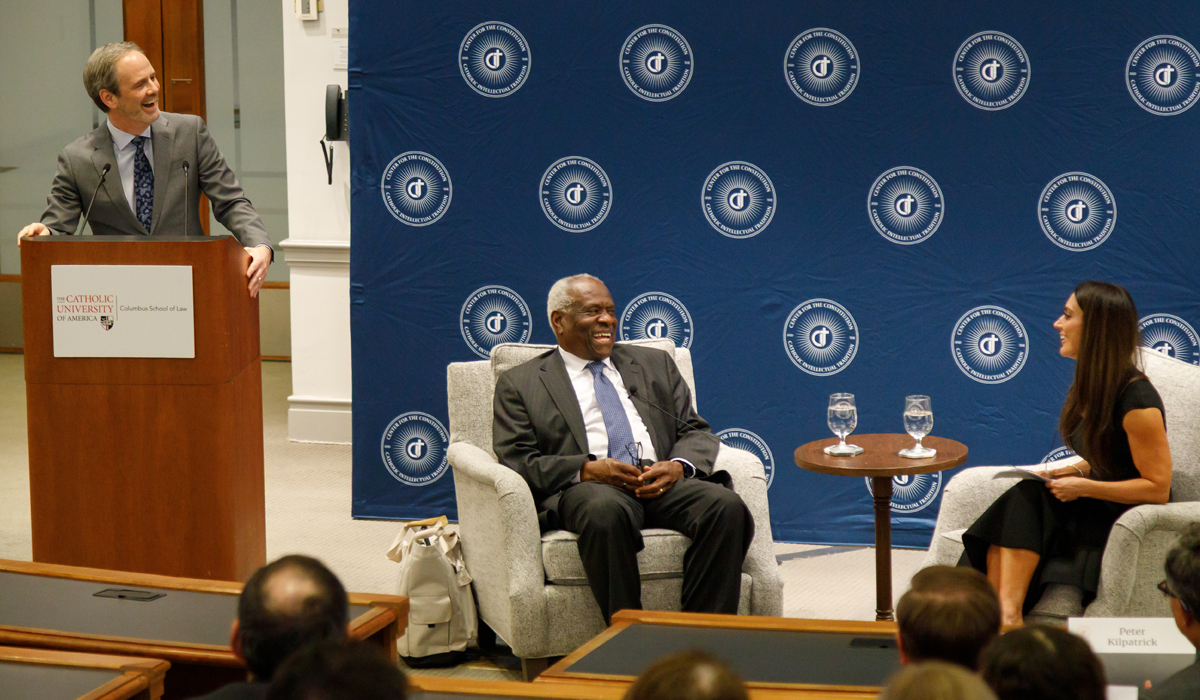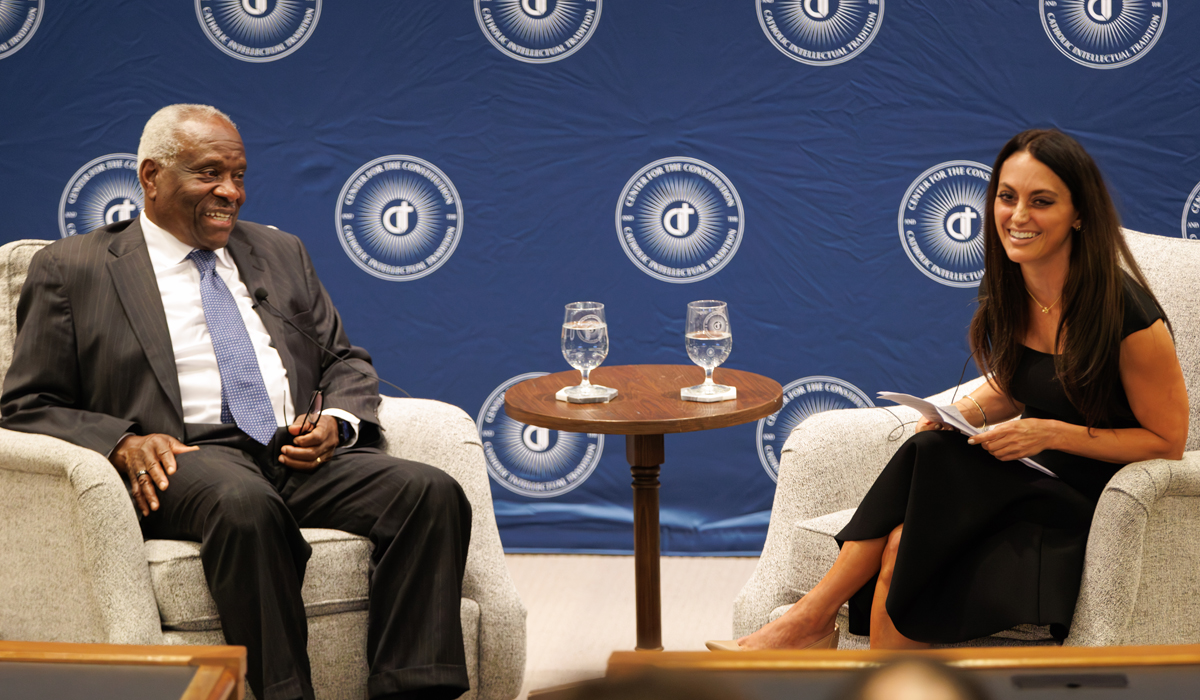
For the fourth consecutive year, the Center for the Constitution and the Catholic Intellectual Tradition (CIT) opened its academic year of programming by hosting a conversation with a Supreme Court Justice. On Thursday, September 25th, CIT welcomed Justice Clarence Thomas to address faculty, students, and alumni of Catholic Law. The conversation was moderated by CIT Affiliated Fellow Jennifer Mascott, an Associate Professor of Law with Catholic Law, nominee for the U.S. Court of Appeals for the Third Circuit, and a former law clerk for Justice Thomas.
After an opening prayer led by University Chaplain Rev. Aquinas Guilbeau, Dean Stephen C. Payne introduced the event by celebrating the remarkable growth of the Columbus School of Law. Catholic Law–having achieved its highest U.S. News ranking ever this past spring at #71–welcomed its most qualified first-year class this fall, the largest in 13 years.
 Among his acknowledgements, Dean Payne thanked Catholic Law students for upholding a tradition of respectful discourse and remaining “both sharp and civil.” He also attributed some of the success of the school to CIT, under the direction of Prof. J. Joel Alicea: “I just really want to congratulate Joel and all the folks associated with CIT on the tremendous engine they have been for our law school in achieving what it has achieved.”
Among his acknowledgements, Dean Payne thanked Catholic Law students for upholding a tradition of respectful discourse and remaining “both sharp and civil.” He also attributed some of the success of the school to CIT, under the direction of Prof. J. Joel Alicea: “I just really want to congratulate Joel and all the folks associated with CIT on the tremendous engine they have been for our law school in achieving what it has achieved.”
Prof. Mascott then began the conversation with Justice Thomas on a personal note of admiration, praising his “warmth and heart for people of all walks of life,” as well as his tremendous jurisprudential impact.
 Catholic education quickly became a central theme of the conversation, as the Justice described both his upbringing and his approach to law. He attributed his career and success to the nuns that taught him–“my nuns,” as he referred to them. “It’s their victory.” He described how their perseverance, as well as his grandfather’s example of faith and gratitude, instilled in him a disposition of humility that defines his service on the Supreme Court.
Catholic education quickly became a central theme of the conversation, as the Justice described both his upbringing and his approach to law. He attributed his career and success to the nuns that taught him–“my nuns,” as he referred to them. “It’s their victory.” He described how their perseverance, as well as his grandfather’s example of faith and gratitude, instilled in him a disposition of humility that defines his service on the Supreme Court.
He recalled discussing this with Justice Scalia: “We often talked about the fact that we had no right to judge our fellow men.” Though they differed in their interests in theater (“I like the opera, but I don’t like people who go to the opera,” Justice Thomas joked), both justices grounded their authority in the original meaning of positive law, not, as he said, “in our own bundle of beliefs.”
Justice Thomas encouraged law students to take the same approach: to seek solid grounds for legal judgment beyond personal opinion. Currently, the Justice teaches a course at the Columbus School of Law, which he described during the conversation as a “joint scavenger hunt” for the truth. When Prof. Mascott asked the Justice if he was ever concerned about running out of material for the course, he replied, “The human experience is one that seems to have no limit—there’s always something to learn.”
The event, an exciting launch to another year of growth for CIT, can be viewed here:
